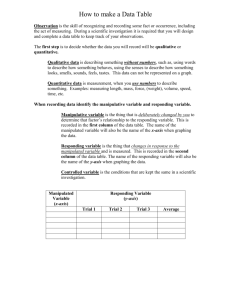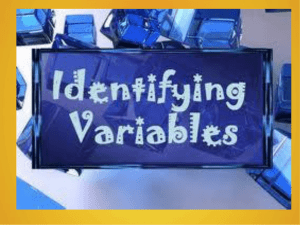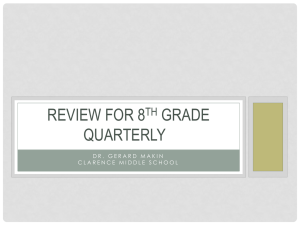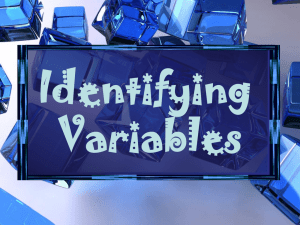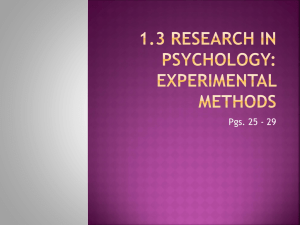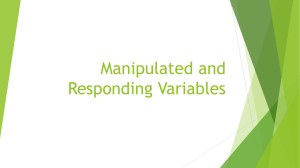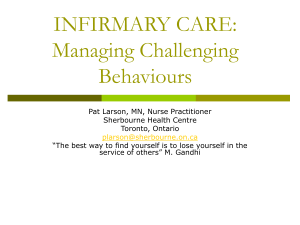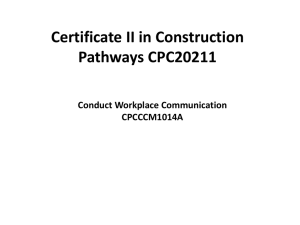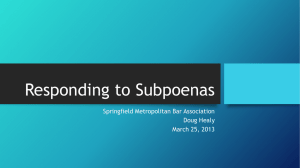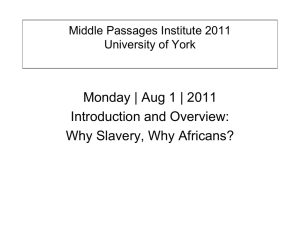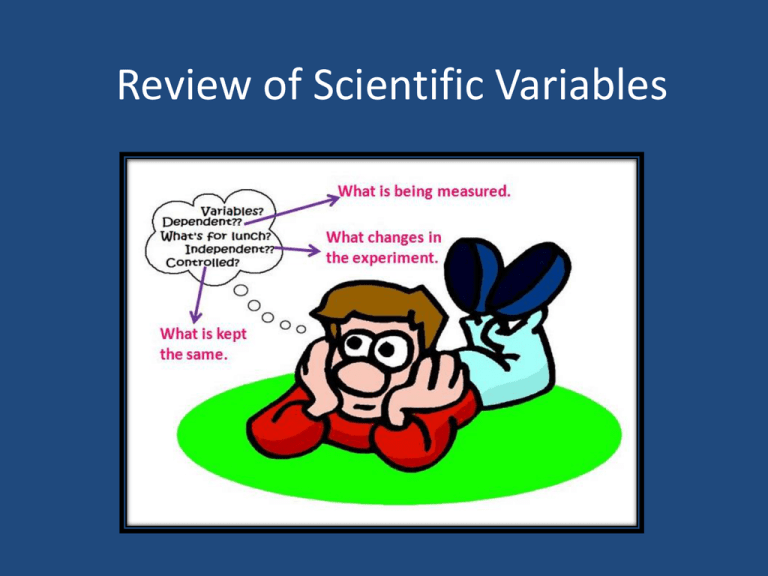
Review of Scientific Variables
Review of Scientific Variables
Identify the variables in each of the following examples.
A scientist was trying to see if the amount of water a plant gets
affects plant growth. She collected 10 identical plants and gave
them different amounts of water. She measured their growth
daily. The plants received the same amount of sunlight.
1. What is the manipulated variable in the above
investigation?
A.
B.
C.
D.
Plant growth
Amount of sunlight
Amount of water
10 plants
Review of Scientific Variables
Identify the variables in each of the following examples.
A scientist was trying to see if the amount of water a plant gets
affects plant growth. She collected 10 identical plants and gave
them different amounts of water. She measured their growth
daily. The plants received the same amount of sunlight.
2. What is the responding variable?
A.
B.
C.
D.
Amount of sunlight
Plant growth
Growth measured daily
The method used to measure the plants
Review of Scientific Variables
Identify the variables in each of the following examples.
A scientist was trying to see if the amount of water a plant gets
affects plant growth. She collected 10 identical plants and gave
them different amounts of water. She measured their growth
daily. The plants received the same amount of sunlight.
3. What are the controlled variables?
A.
B.
C.
D.
Amount of sunlight
10 identical plants
Amount of water
Both A and B
Review of Scientific Variables
Identify the manipulated and responding variable(s) in
each question from the information given. Then, think of
at least two controlled variables that could be set for
each experiment.
4. Does the shape of a container affect how fast water
will evaporate form it?
Shape of container
Manipulated variable: __________________________
Rate of evaporation
Responding variable: __________________________
Volume / temperature of water
Controlled variable 1: __________________________
Time measurement is taken
Controlled variable 2: __________________________
Review of Scientific Variables
Identify the manipulated and responding variable(s) in
each question from the information given. Then, think of
at least two controlled variables that could be set for
each experiment.
5. How does the distance from a flashlight to a screen
affect the size of the illuminated area?
Distance of flashlight to screen
Manipulated variable: __________________________
Size of illuminated area
Responding variable: __________________________
Same flashlight for each distance
Controlled variable 1: __________________________
Same method of measuring area
Controlled variable 2: __________________________
Review of Scientific Variables
Identify the manipulated and responding variable(s) in
each question from the information given. Then, think of
at least two controlled variables that could be set for
each experiment.
6. How does the weight of a parachute load affect how
fast it will fall?
Weight of parachute load
Manipulated variable: __________________________
Rate of fall
Responding variable: __________________________
Area of open chute
Controlled variable 1: __________________________
Height at which load was dropped
Controlled variable 2: __________________________
Review of Scientific Variables
Identify the manipulated and responding variable(s) in
each question from the information given.
7. Scientists were trying to determine if junk food would
cause a mouse to gain weight. The diet of mice was
varied. Some mice were given junk food. Others were
given Mouse Chow. The mice were weighed daily. All mice
were the same sex, the same age, and the same species.
Type of diet
Manipulated variable: __________________________
Weight of mouse measured daily
Responding variable: __________________________
Same age and species of mouse
Controlled variable 1: __________________________
Same sex, time of measurement
Controlled variable 2: __________________________
Review of Scientific Variables
Identify the manipulated and responding variable(s) in
each question from the information given. Then, think of
at least two controlled variables that could be set for
each experiment.
8. How does the amount of fertilizer a farmer uses affect
the number of beans he harvests?
Amount of fertilizer
Manipulated variable: __________________________
Number of beans harvested
Responding variable: __________________________
Same amount of water, sunshine
Controlled variable 1: __________________________
Same type of soil, fertilizer
Controlled variable 2: __________________________
Review of Scientific Variables
Identify the manipulated and responding variable(s) in
each question from the information given. Then, think of
at least two controlled variables that could be set for
each experiment.
9. Do different types of food mold at different rates?
Type of food
Manipulated variable: __________________________
Rate of molding
Responding variable: __________________________
Exposure to same environment
Controlled variable 1: __________________________
Time span that molding occurs
Controlled variable 2: __________________________
Review of Scientific Variables
10. A scientist was trying to determine if the shape of hot
air balloons would affect how high they went. The shape
of 10 hot air balloons varied. Some were oval; some were
round. The altitude (how high they went) was measured.
The scientist tested them on the same day so the weather
conditions would be the same. The balloons had the same
air volume.
Shape of balloon
Manipulated variable: __________________________
Responding variable: __________________________
How high the balloons would go
Method of measurement; same day
Controlled variable 1: __________________________
Balloons were same volume
Controlled variable 2: __________________________
Review of Scientific Variables
11. Study the chart below. Identify the manipulated,
responding, and controlled variables.
Sugar Sample
Water Conditions
Time to Dissolve (min)
Whole sugar cube
Hot
5
Two-half sugar cubes
Hot
3
Crushed sugar cube
hot
1
Surface area of sugar sample
Manipulated variable: __________________________
Responding variable: __________________________
Time to dissolve
Same temperature of water
Controlled variable 1: __________________________
Same size container for sugar
Controlled variable 2: __________________________
and water


